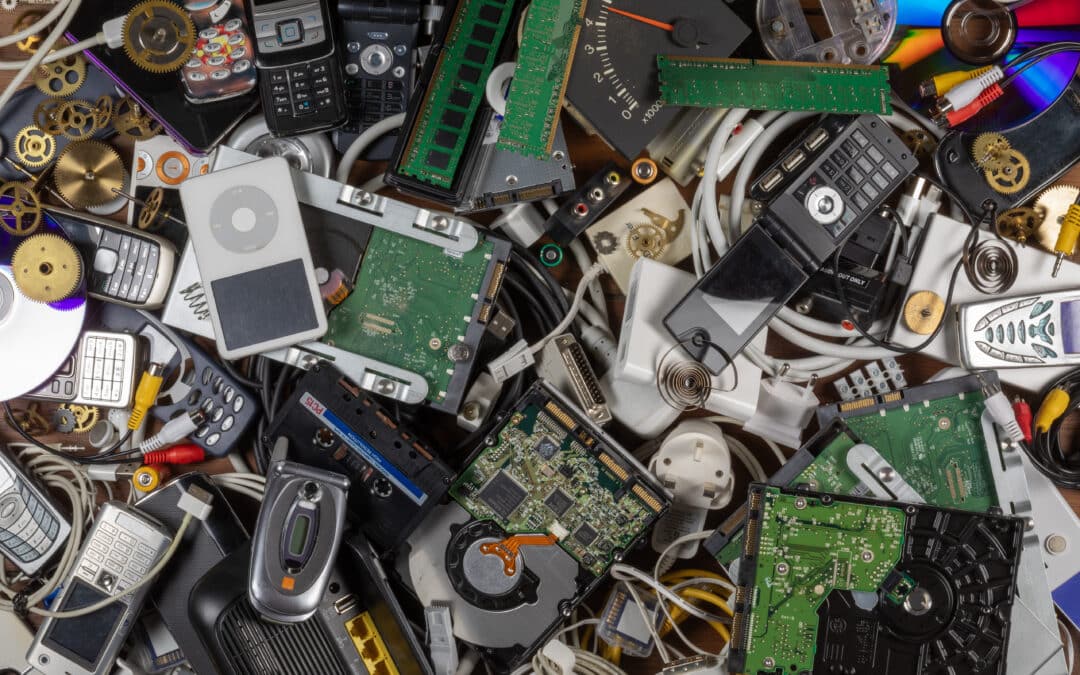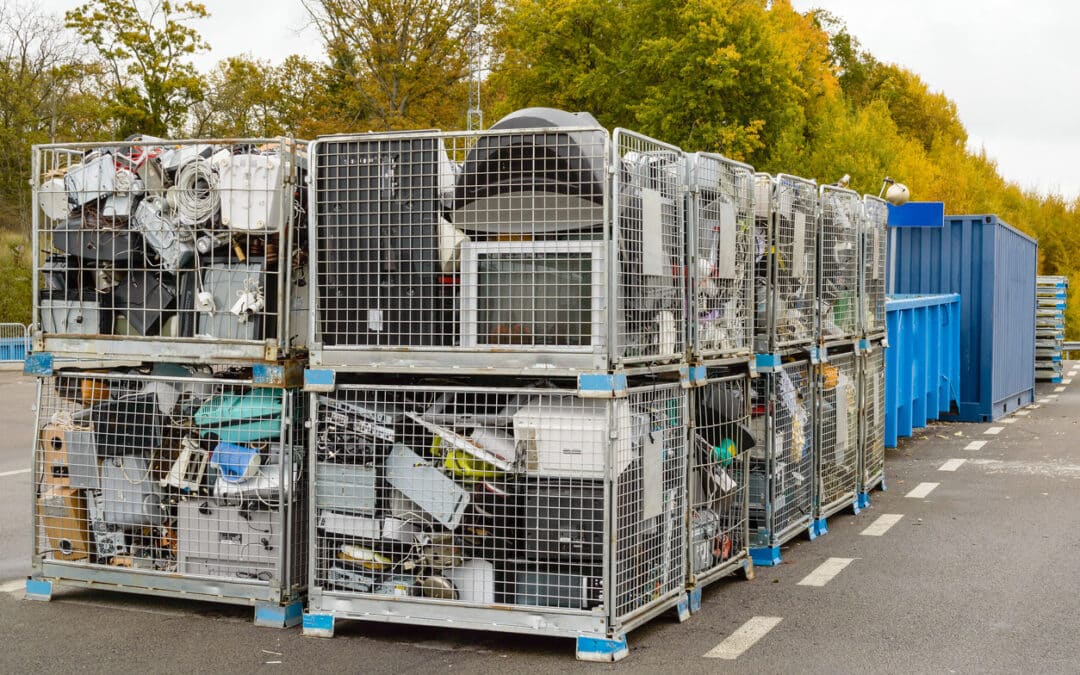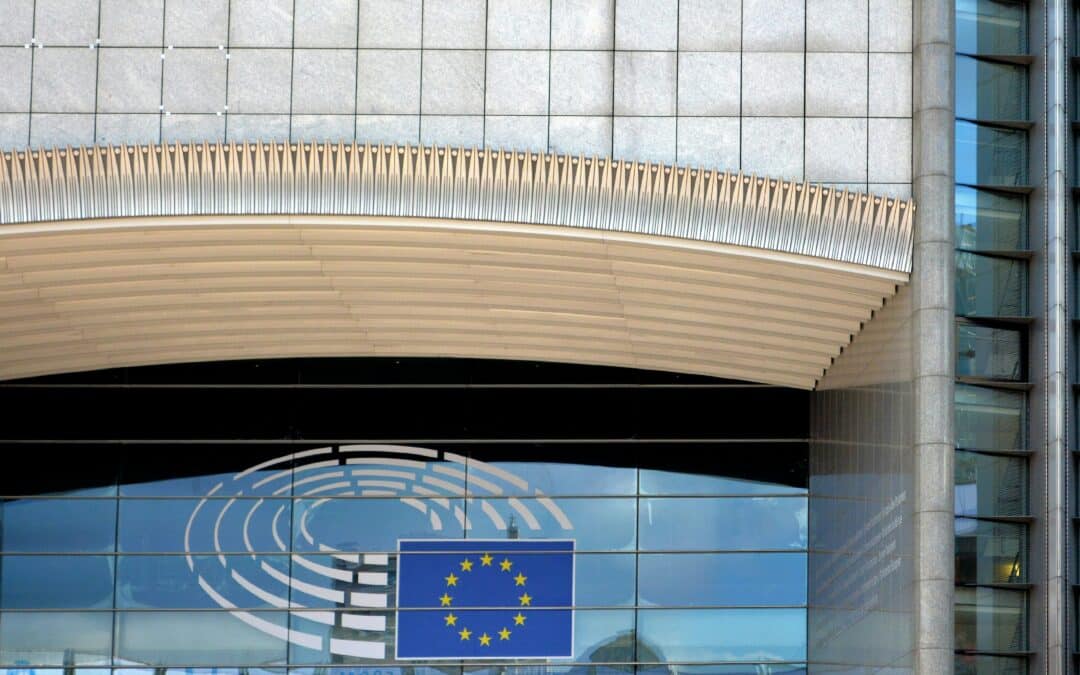Extended Producer Responsibility (EPR) schemes are flawed for various reasons. We already wrote about the governance issues surrounding EPR and the way in which it does not sufficiently address product design in e.g. the textile sector. A new report by Circular Economy Lab (CEL) and the European Environmental Bureau (EEB) places the focus on another flaw: discarded electronic devices and vehicles are often given ‘another life’ outside of Europe, mostly by shipping them to African countries. By doing so, the end-of-life costs that are supposed to be paid by producers under EPR schemes, do not follow the products when shipped abroad. If the products would effectively be reused locally, this might not even pose a big problem. However, the report shows that the products received are often used products that no longer function, hence they should be labeled waste instead of ‘reusable products’. As an example, Hinckley recycling group based in Nigeria states that around 70% of the products they import labeled as ‘Used Electrical and Electronic Equipment’ (UEEE) is effectively waste. When waste is shipped from Europe to African countries, we are essentially shifting the waste burden from Europe to African communities. This is not only a financial burden, but also an environmental, social and health-related one.
When looking at the different national EPR-schemes, the report by CEL and EEB mentions that there is a lack of harmonization between national policies, creating data-reporting and cross-border transfers issues. In order to tackle the aforementioned problems, CEL and EEB propose several measures, including a redesign of EPR schemes in order to create a transfer of EPR fees from the EU towards Africa for the waste management costs.
The problem with exports of used goods and waste
Problems around the export of waste are not limited to used vehicles and electronics that were studied in the report of CEL and EEB, but also arise in the case of e.g. plastics and textiles. In 2021, the Netherlands alone exported more than 200 million kilograms of plastic waste, making it EU’s largest exporter to non-OECD countries. Similar to what is happening with cars and electronics, when plastics are shipped, they end up being burned or landfilled locally, because the appropriate infrastructure in those communities is lacking. This can be seen as a form of waste colonialism, which entails the idea that rich countries export waste to be dealt with out of their sight, thereby burdening local communities with the negative consequences of the waste management. The lack of appropriate waste management systems in the receiving country leads to great negative impacts for the local environment, the health of the communities and gives rise to social issues.
There are already various pieces of European legislation in place that are supposed to regulate and finance the flow of used goods and discarded waste within and outside of the European Union, such as the Waste Framework Directive (WFD), WEEE Directive, Packaging and Packaging Waste Directive (PPWD), End-of-Life Vehicles Directive (ELV), Waste Shipment Regulation (WSR) and the Batteries and Accumulators Directive (BAD). The European Parliament and European Council are currently discussing a revised version of the Waste Shipment Regulation that could potentially prevent waste export for one waste category, namely plastics. While this will be crucial for limiting the export of plastic waste, the problem of vehicles and electronics shipped to be ‘reused’ will not disappear.
Extended Producer Responsibility
In Europe, many countries have EPR-schemes in place for various product groups (a.o. batteries, packaging, tires) in order to make producers pay for the end-of-life management of their products. Producers pay a fee that is linked to how much they put on the market, that covers the costs for adequate waste collection and handling. The EPR-system does not take into account that when products are shipped abroad, producers effectively get a free pass for the end-of-life management costs. Instead of being placed on the producers, the financial burden is shifted onto the receiving country. Given that producers will look for ways to keep their costs as low as possible, this loophole undermines the effectiveness of the EPR-legislation. For a circular and sustainable economy to work, we need inclusive policies that do not only look at the wellbeing of the environment and societies within Europe, but also beyond. European legislation thus needs to put an end to this practice of exporting goods that cannot be used and are effectively waste, and producers need to take their full financial responsibility in the end-of-life management of their goods.
How could this be done? One of the ideas is so-called Ultimate Producer Responsibility (UPR). Thapa et al., researchers at Utrecht University, argue that with UPR “the financial responsibility for collecting and recycling according to the highest possible value retention option (R hierarchies) falls upon the manufacturers, no matter where the product geographically is finally collected and recycled”. In practice, this means that Producer Responsibility Organisations (PROs) in several countries should be connected to each other in order to transfer fees to the location where the actual end-of-life management takes place.
One of the prerequisites to make this system function well, is greater transparency and traceability. The current transparency issues – not knowing what is shipped by whom, combined with a lack of traceability – could potentially be dealt with through better monitoring and reporting. According to CEL and EEB this could take the shape of training border control employees and custom agents, combined with testing the actual contents of what is being shipped. This should be enforced through better legislation (within the WEEE Directive and ELV Directive) that also stipulates what exactly constitutes ‘used’ items and when something becomes ‘waste’. However, as we know from experience around the (illegal) shipment of plastic waste, custom-related procedures are relatively easy to bypass through misdeclaration practices. Furthermore, the bigger ports in Europe, like those in Rotterdam (Netherlands) and Antwerp (Belgium), would disproportionately carry the burden of improved controls, while the whole of Europe uses those ports for their exports. The question is whether those practices can be ended through the mere training of border control and custom agents.
Specifically for used vehicles, even if the EPR fee does stay associated with it when shipped abroad, the specificities of the different materials that are part of a vehicle, like batteries, tyres, electronics and textiles are often overlooked. This then leads to improper disposal of those materials. Therefore, a Digital Product Passport (DPP) – including repair instructions, information on proper recycling and the product’s environmental impact – could be applied to all those materials, thereby creating better traceability and monitoring of the various materials (if implemented EU wide). This would also make it more difficult to export the separate parts of vehicles in an illegal manner, according to CEL and EEB.
General problems related to waste management fees
Where the export of used products and waste provides us with a very clear example of the limited effectiveness of the EPR fees, even the waste management that happens within countries where the EPR-scheme is active is insufficient. This is due to the fact that the fees only cover those waste products that are separately collected. Meaning that all products that are not separately collected, either because they are disposed of in the wrong way or because the collection system is flawed, end up being paid for by public money. As an example, only 42% of the 12 megatonnes of electronic waste produced by Europeans in 2019 was collected adequately, leaving 58% unaccounted for. This is also why in our policy recommendations for a.o. EPR for textiles in The Netherlands, we advised to make PROs also responsible for the fraction that is not separately collected in order to encourage them to collect as much as possible.



